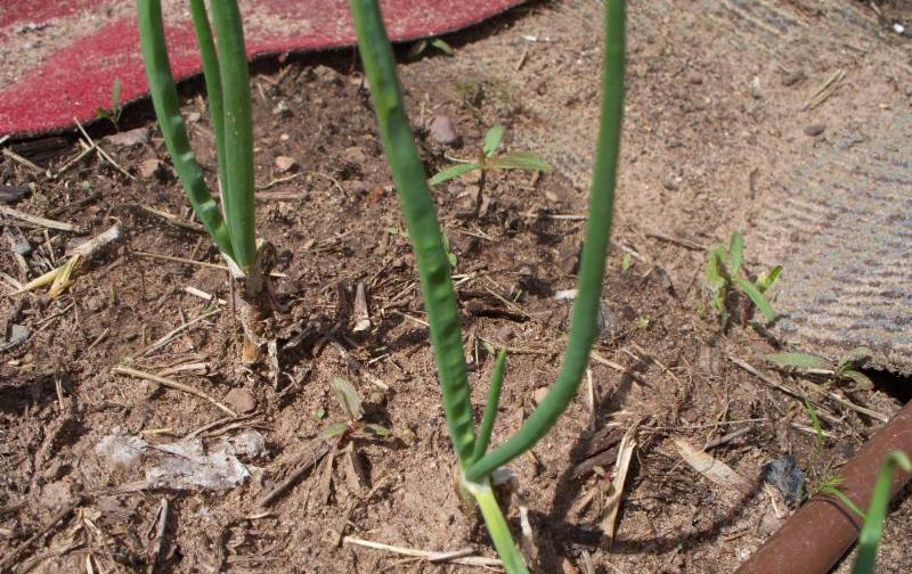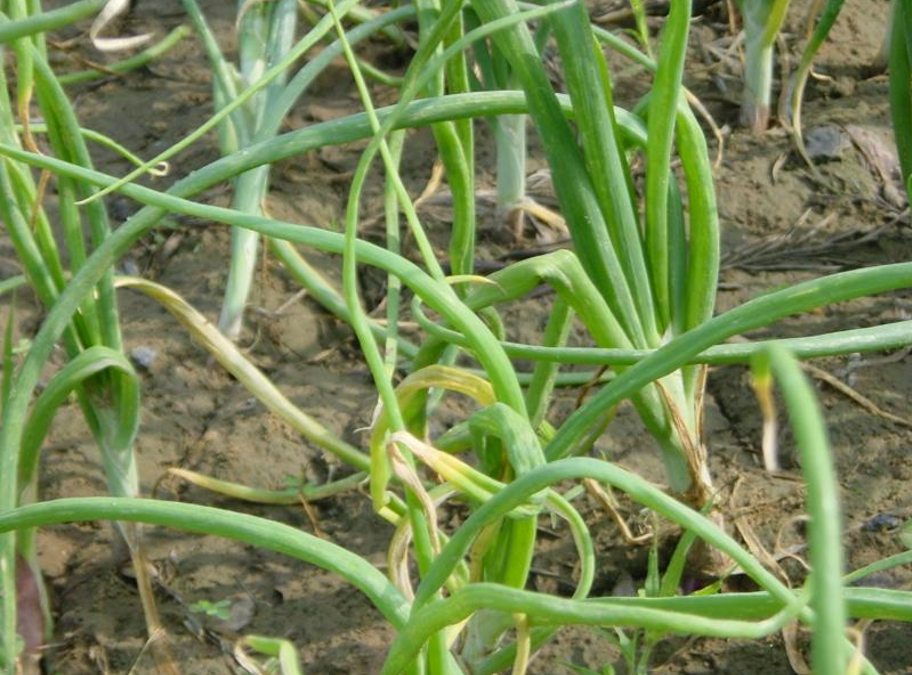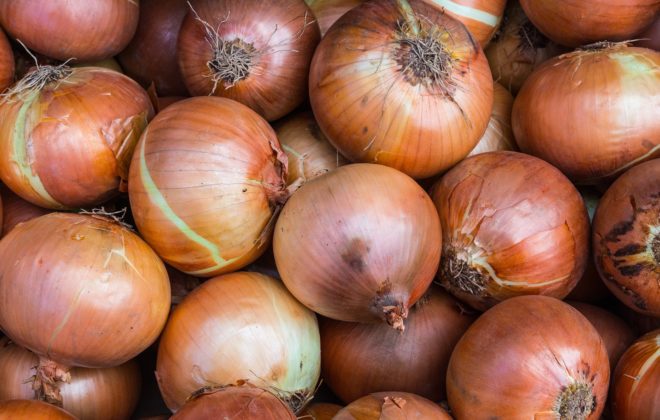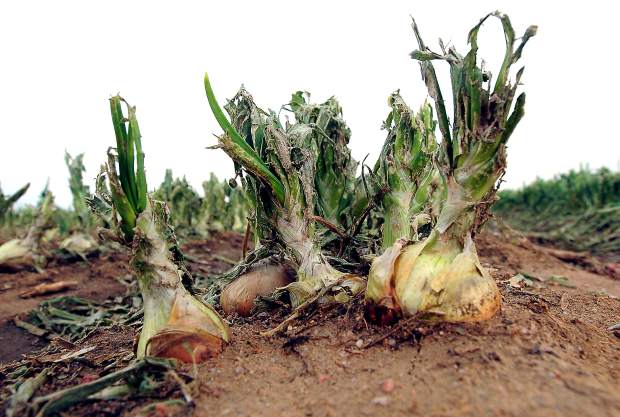Common Micronutrient Deficiencies in Onions
Are your tops falling prematurely? Manganese and zinc deficiencies are the most common problem that causes tops to prematurely bend over or become disfigured. Tops falling over prior to the bulb reaching maturity can result in decreased yields.
Common onion deficiencies
Onions are very sensitive to manganese and zinc deficiencies. Deficiencies result in stunted plant growth with noticeable twisting and faint interveinal discoloration of the leaves. Older leaves take on an orange mottled appearance. Younger leaves have a faint chlorosis and yellow striping. This weakness causes the leaves to fall over or bend and may also progress to a tip burn eventually curling and dying. These deficiencies may also cause delayed maturity and a high percentage of thick necked bulbs at harvest.

One of the easiest ways to apply manganese and zinc is with the Mancozeb Fungicide with Zinc which contains both micronutrients. This fungicide will also protect from diseases such as blight, downy mildew, neck rot, and purple blotch.
Manganese and zinc deficiencies sometimes surface after strong winds are accompanied by heavy rain or by overwatering the plants. Applying Mancozeb Fungicide with Zinc on a weekly basis will straighten the plants back up and greatly increase your yields. Cut back on the watering of your onions for a week after spraying this material, and the tops should start to stand back up. An application of nitrogen will also replace the nitrogen that may have leached from the soil. We hope this information helps our customers keep their onions healthy and on the path to full size onion bulbs!
As always, we are available year-round to answer any growing questions you may have along the way or specific questions about rain in your onion patch. Contact us by phone at (830) 876-2430 or visit dixondalefarms.com
Looking for more tips on managing your onion crop? Check out our troubleshooting section!




